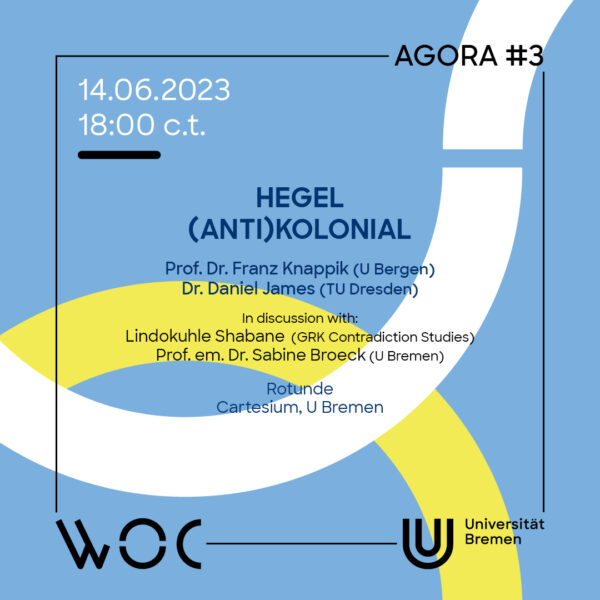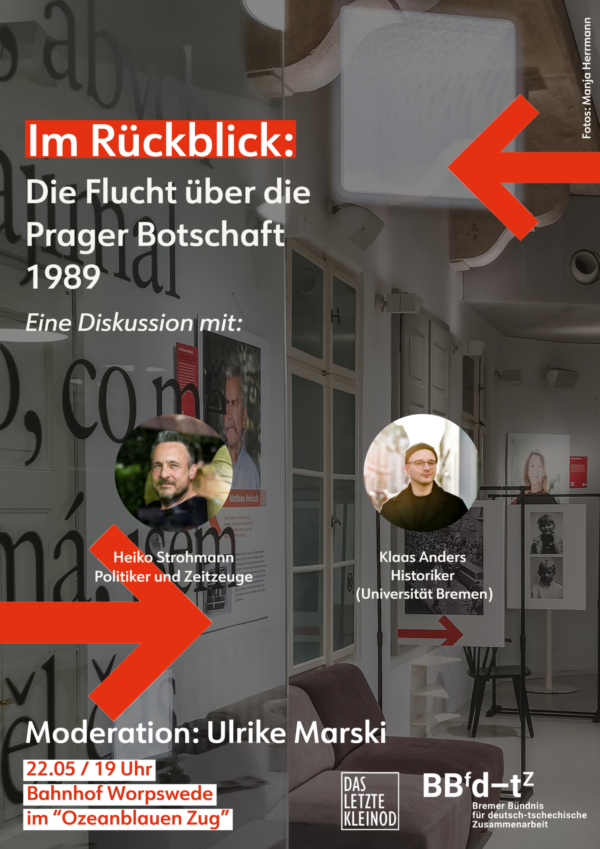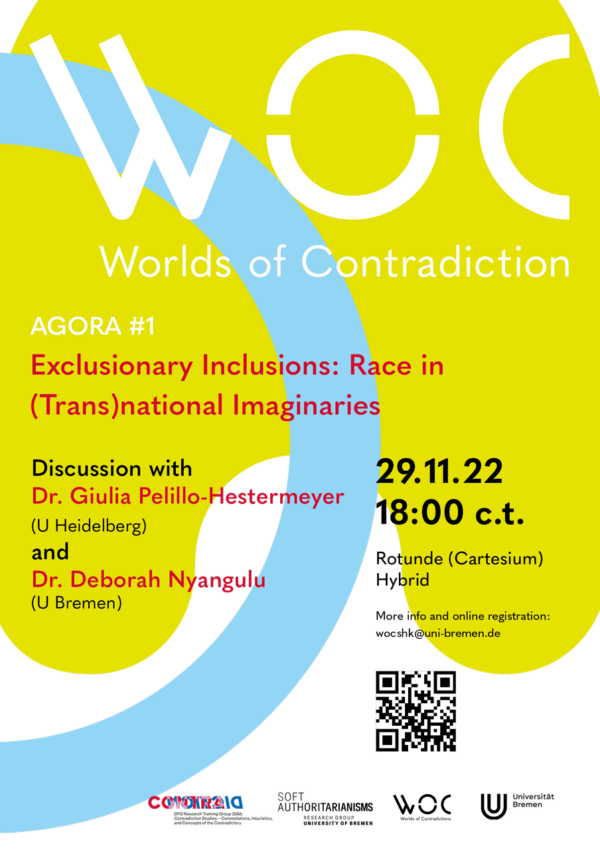Panel Discussions
Past Events
-
 Wie weiter nach den Parlamentswahlen in Spanien?
Wie weiter nach den Parlamentswahlen in Spanien?The panel discussion will be held in German and English with simultaneous translation.
After the recent elections in Spain, a stalemate emerged in which neither the PP- nor PSOE-led coalition of choice could unite a majority behind them. The Catalan nationalists from the left and right suddenly emerged as the kingmakers in the talks to form a government, ultimately enabling the re-election of Pedro Sánchez as Prime Minister in return for a controversial amnesty for Catalan independence advocates.
-
 Widersprüche der Erinnerungskultur. Die Realität der postmigrantischen Gesellschaft anerkennen?
Widersprüche der Erinnerungskultur. Die Realität der postmigrantischen Gesellschaft anerkennen?Die deutsche Gesellschaft ist stark von Migrationsbewegungen und dadurch von einer Vielstimmigkeit an Vergangenheits- und Erinnerungsnarrativen geprägt und die hier lebenden Menschen stützen ihre Identitäten auf unterschiedliche kulturelle Praktiken des Erinnerns. Das sog. Kollektive Gedächtnis einer ganzen Gesellschaft ist also von jeher ein von Widersprüchen gekennzeichnetes Konstrukt, das zwar den Anschein einer kohärenten Entwicklung, ähnlich einer Biografie, zu erwecken versucht, diesem aber nie wirklich gerecht werden kann. Daher muss, um Widersprüche und die daraus eventuell resultierende Konflikt so gering wie möglich zu halten, der Inhalt eines jeden kollektiven Gedächtnisses gruppiert, sortiert und priorisiert werden.
Eine dieser in Deutschland omnipräsenten Widerspruchskonstellationen ist die Erinnerung an die Shoah, die zwischen ritualisierten „Nie Wieder“ und der Forderung nach einem „Schlussstrich“ und zwischen Aushandlungen von Schuld und Versöhnung zwar immer wieder als Musterbeispiel der Aufarbeitung genannt, aber auch mindestens genauso oft kritisiert wird.
So erklärte der Publizist und Lyriker Max Czollek die deutsche Erinnerungskultur kürzlich zu einem „Versöhnungstheater“, das zwei Rollen vorsieht: Die Täter*innen, denen vergeben wird und die Opfer, die zu vergeben haben. Die Realität der postmigrantischen Gesellschaft bringt dieses einstudierte deutsche Schauspiel jedoch durcheinander, denn längst umfasst die Gesellschaft vielschichtige Perspektiven und Biographien, die sich nicht in dieses dichotome Feld einsortieren lassen. Daher wollen wir bei dieser Veranstaltung darüber sprechen, inwiefern das Versöhnungstheater darauf abzielt, die Widersprüche der postnazisitischen Gesellschaft aufzulösen und gleichzeitig an der Realität der postmigrantischen Gesellschaft scheitert. Was das für die deutsche Erinnerungskultur in der Praxis bedeutet und welche Herausforderungen aber auch Chancen das mit sich bringt, das wollen wir diskutieren.
-
 Constitution and/or Declaration. Discussing the Question of the (Linguistic) Construction of Contradictions
Constitution and/or Declaration. Discussing the Question of the (Linguistic) Construction of ContradictionsIn this Lunchbox we want to discuss what it means to consider contradictions a product of declaration. In order to make clear the history and theoretical assumption of this concept, we want to give a brief input on Speech Act Theory and provide some concrete […]
-
 Afrospanish Literature. Between Activism and Creating References
Afrospanish Literature. Between Activism and Creating ReferencesAt the 3rd Wuppertaler Malala Day 2023.
-
 Blackness as a Universal Claim. Holocaust Heritage, Noncitizen Futures and Black Power in Berlin
Blackness as a Universal Claim. Holocaust Heritage, Noncitizen Futures and Black Power in BerlinIn this bold and provocative new book, Damani Partridge examines the possibilities and limits for a universalized Black politics. German youth of Turkish, Arab, and African descent use claims of Blackness to hold states and other institutions accountable for racism today. Partridge tracks how these young people take on the expressions of Black Power, acting out the scene from the 1968 Olympics, proclaiming “I am Malcolm X,” expressing mutual struggle with Muhammad Ali and Spike Lee, and standing with raised and clenched fists next to Angela Davis. Partridge also documents public school teachers, federal program leaders, and politicians demanding that young immigrants account for the global persistence of anti-Semitism as part of the German state’s commitment to anti-genocidal education. He uses these stories to interrogate the relationships between European Enlightenment, Holocaust memory, and Black futures, showing how noncitizens work to reshape their everyday lives. In doing so, he demonstrates how Blackness is a concept that energizes, inspires, and makes possible participation beyond national belonging for immigrants, refugees, Black people, and other People of Color.
Rozena Maart (U KwaZulu-Natal) and Lewis R. Gordon (UCON), moderated by Katrin Antweiler (IfEK/WoC, U Bremen).
-
 Hegel (anti)kolonial
Hegel (anti)kolonialHegel arguably developed and disseminated racist and pro-colonialist views. At the same time, he has been a source of inspiration for generations of progressive philosophers, incl. thinkers in the Black radical tradition and their accounts of liberation. „Hegel(anti)kolonial“ is a project that aims to examine this ambivalent colonial legacy, both by discussing Hegel’s own texts and thought and by exploring issues of race and colonialism in traditions of post-Hegelian thought. In this talk, we exemplify this approach by focusing on one key instance, the topic of transatlantic slavery. In lectures and publications during his Berlin period, Hegel provides a series of comments on transatlantic slavery that we discuss in the first part of our talk. Constructing the debate on the abolition of slavery as an ‚antinomy‘ between anti- and pro-slavery views, he argues that slavery ultimately has to be overcome, but he also holds that as a tool for ‚disciplining‘ people of African descent (who, on his degrading account, lack the mental preconditions for a life in freedom) slavery is provisionally legitimate, and should not be abolished immediately. Hegel’s partial defense of slavery draws on his famous ‚master-slave‘ dialectic, which later would become a point of reference for various authors in the Black radical tradition. Among them, the second part of our talk singles out Angela Davis, who discusses the master-slave dialectic in her 1970 Lectures on Liberation, through the lens of Frederick Douglass’s account of his liberation. As we will show, Davis separates the ‚master-slave‘ dialectic from its apologetic context and drops the racialist background assumptions that supported Hegel’s partial defense of slavery. Instead, she emphasises the role of struggle (as opposed to ‚discipline‘) in liberating the enslaved. Davis, too, conceptualizes these issues in terms of a contradiction, but she locates it elsewhere than Hegel with his ‚antinomy‘ of slavery − namely, in the ‚paradox‘ of bourgeois philosophy that claims freedom for all humans, while de facto denying it to many.
-
 (Breaking) Barriers in Academia: Mapping the Field
(Breaking) Barriers in Academia: Mapping the FieldThe dominant understanding of academia assumes that beneficial participation for all involved (students, early career researchers, academic staff…) is based primarily on the ability to make a valuable intellectual contribution to research. In reality, however, universities – and higher education as a whole – are complex social systems in which the agency and access of each individual is determined in multiple ways, including by gender, ethnicity, social class, and health status. These determinations can create powerful cultural and social barriers and inequalities. In the panel discussion “(Breaking) Barriers in Science: Mapping the Field,” we will try to overcome the taboo of not addressing them, identify the most common types of barriers, consider strategies for addressing them, and narrow down the future content of our Navigating Academia series.v
-
 Im Rückblick: Die Flucht über die Prager Botschaft 1989
Im Rückblick: Die Flucht über die Prager Botschaft 1989Panel discussion on the memory of the events in autumn 1989 in the German Embassy in Prague, as part of the stage play “Über den Zaun”.
-
 Exclusionary Inclusions: Race in (Trans)national Imaginaries
Exclusionary Inclusions: Race in (Trans)national ImaginariesThe first discussion in WoC’s new Agora format will focus on the exclusionary effects of contemporary discourses and politics of inclusion. Taking the globalization and mediatization of the Black Lives Matter movement as a starting point, the event will discuss transcultural negotiations of anti-racism against the backdrop of different colonial histories.